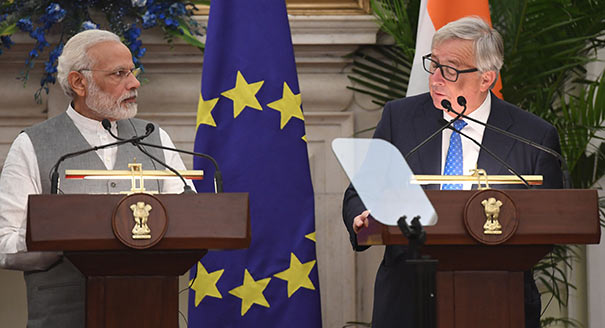Source: German Marshall Fund of the United States
Europe’s initial enthusiasm about the Belt and Road Initiative (BRI) is tempering. BRI is undermining the EU’s internal cohesion, has the potential to impact European security, and is creating stiff competition for European companies on trade, investments, and market access in Europe and Asia. European policymakers are also beginning to realize the impact of BRI beyond the European continent — notably on the power balance and stability in Asia. Asian markets are important export destinations for Europe, and a majority of its sea-borne trade transits through the Indo-Pacific.
Europe, therefore, has a clear interest in maintaining a rules-based order and unhindered trade flows in the Indian and Pacific Oceans. Even though Europe is still grappling with the new “Indo-Pacific” framing, its interests converge with the Quad countries. Member states like France and Britain have already begun to reassess their security role in the Indo-Pacific. And the EU wants to partner with key players in Asia on shaping the rules around connectivity, and provide a comprehensive response to the BRI challenge.
This article was originally published by the German Marshall Fund of the United States.
